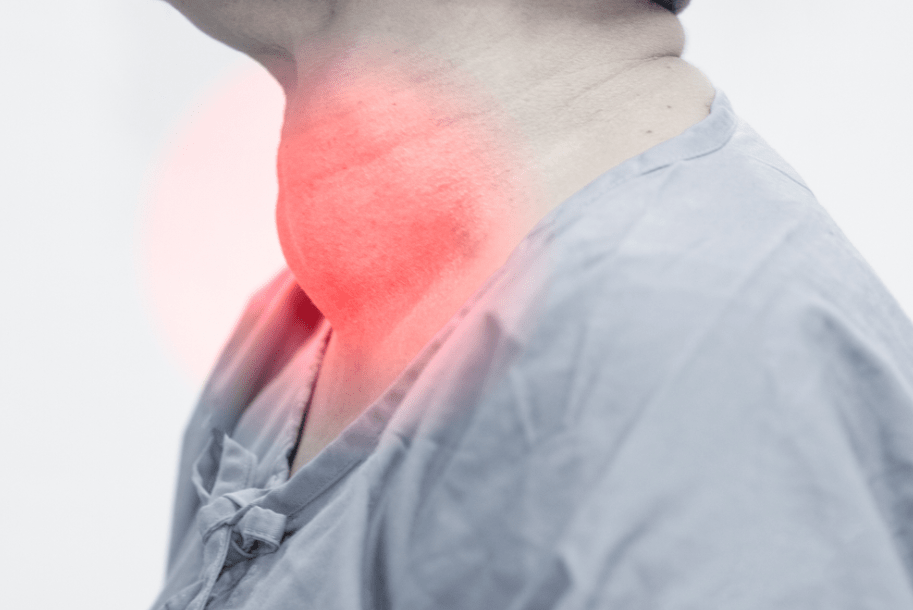Turkey is renowned for offering the best surgeons and best clinics for thyroid cancer surgery. Many patients choose to travel abroad for these procedures, as Turkey is considered the best country for high-quality care at a competitive cost. The price of thyroid cancer surgery in Turkey is often significantly lower than in other countries, making it an attractive option for international patients. Positive reviews from patients highlight the exceptional standards and outcomes achieved in Turkey. When considering thyroid cancer surgery abroad, Turkey’s affordable price, skilled surgeons, and top clinics make it a leading choice for reliable and advanced treatment.
| Types of Surgery | – Lobectomy: Removal of only one lobe of the thyroid gland; preferred in early-stage, small, or localized cancers. – Total Thyroidectomy: Removal of the entire thyroid gland; preferred if the cancer has spread to both lobes of the thyroid gland. – Lymph Node Dissection: If cancer has spread to the lymph nodes, the lymph nodes in the neck area may also be removed. |
| Objective | Complete removal of the cancerous tissue to prevent the spread of cancer and reduce the risk of recurrence. Removing the thyroid also helps in controlling hormone levels. |
| Preoperative Preparation | – Blood tests, thyroid hormone level measurements, and a thyroid ultrasound are performed before surgery. – A CT scan or MRI may be done to determine the size and extent of the tumor. – The patient undergoes an overall health assessment, and certain medications may be discontinued before surgery. – The patient is often started on thyroid hormone supplements prior to surgery. |
| Type of Anesthesia | Performed under general anesthesia; the patient is fully sedated during the procedure. |
| Duration of Surgery | Varies depending on the type of surgery but generally takes 2-4 hours. The duration may increase if lymph nodes are also removed. |
| Recovery Period | – A hospital stay of 1-2 days may be required after the surgery. – Recovery takes about 1-2 weeks, during which time swallowing difficulties, throat pain, and tenderness may occur. – Mild swelling and hardness can develop around the stitches or surgical site. These complaints typically subside within a few weeks. – Most patients can resume daily activities in about 1 week. |
| Postoperative Care | – Care is taken to reduce the risk of infection at the surgical site. – Pain relievers and, if necessary, anti-infective medications are administered. – Strenuous physical activities should be avoided during the recovery period. – Special creams or dressings may be used to support wound healing and minimize scarring. |
| Complications | – Hoarseness: The nerves leading to the vocal cords can be damaged during surgery; in most cases this is temporary and resolves in a few weeks. – Low Calcium: The parathyroid glands, located near the thyroid, may be harmed and cause a drop in calcium levels. – Wound Infection: The risk of infection can be minimized with appropriate care. |
| Follow-Up and Check-Ups | – Thyroid hormone levels are monitored post-surgery, and hormone replacement (levothyroxine) is generally started. – Regular blood tests and imaging methods (ultrasound or CT) are used to check for recurrence of thyroid cancer. – If the parathyroid glands are damaged, calcium and vitamin D supplements may be necessary. |
| Psychological Support | Due to hormone fluctuations after surgery, emotional ups and downs and mood changes may be experienced. Psychological support or counseling is recommended in such cases. |
| Radiotherapy and Radioactive Iodine Therapy | – After thyroidectomy, radioactive iodine treatment can be used to eliminate any remaining thyroid tissue or cancer cells. – Depending on the presence of lymph node involvement or the risk of cancer spread, radiotherapy may be required after surgery. |
Types of Thyroid Cancer
There are four types of thyroid cancer: anaplastic, papillary, follicular, and medullary. Their incidence varies.
- Papillary Thyroid Cancer: The most common type, seen in 80-90% of patients. It can appear at any age and is most frequently observed between 30-40 years. It typically follows a mild course and often shows no symptoms.
- Follicular Thyroid Cancer: Follicular thyroid cancer, which spreads through the bloodstream, accounts for 5-10% of thyroid cancers. It is more prevalent in people in their 50s. Although it progresses slowly, the risk of spread is quite high.
- Anaplastic Thyroid Cancer: Anaplastic thyroid cancer is the rarest type of cancer globally, representing about 2% of cases. It spreads very rapidly, and because the tumor is often advanced at diagnosis, treatment options are limited.
- Medullary Thyroid Cancer: Constitutes 5-10% of all thyroid cancers. It originates from parafollicular cells. One-third of cases exhibit familial characteristics.
What Causes Thyroid Cancer?
Thyroid cancer occurs in both men and women. Hormonal changes particularly trigger this type of cancer. Conditions such as menopause or having recently given birth can lay the foundation for thyroid problems. Apart from these, other risk factors include:
- A family history of hypothyroidism (underactive thyroid), hyperthyroidism (overactive thyroid), or thyroid cancer
- Exposure to radiation in childhood or a history of radiotherapy to the neck
- The presence of a thyroid nodule in individuals over 60
- Iodine deficiency
- Diabetes
- Down syndrome and Turner syndrome
- A history of thyroid disorders or thyroid surgery
- Past intensive use of lithium
- Being of Caucasian or Asian descent
What Is Thyroid Cancer, and What Are Its Symptoms?
Thyroid cancer originates from cells within thyroid nodules.
Among all cancers, it accounts for about 1% of cases, and its incidence has been rising in recent years.
It is four times more common in women than in men.
The majority of thyroid cancer patients do not exhibit any complaints or symptoms directly related to cancer. Diagnosis is often made when nodules in the thyroid are detected via ultrasonography and confirmed with a fine-needle biopsy. However, in some patients, neck swelling (nodule), enlargement of cervical lymph nodes, hoarseness, breathing difficulties, and difficulty swallowing may occur.
Overall, possible symptoms include:
- Swelling and lump in the neck
- Difficulty breathing
- Hoarseness
- Difficulty swallowing
- Bone loss (osteoporosis)
- Pain extending from the neck to the ears
- Low blood and cholesterol values
- Fatigue
- Weight gain
- Irritability
- Loss of libido
How Is Thyroid Cancer Diagnosed?
For patients presenting with nodules or goiter in the thyroid area of the neck, an ultrasound scan of the neck region should be performed. It must be determined whether there are nodules suspected of being cancerous or if there are any lymph nodes in the neck that appear malignant.
Suspicious thyroid nodules require a fine-needle aspiration biopsy under ultrasound guidance to confirm the diagnosis via pathological examination.
What Is Thyroid Cancer Surgery?
Thyroid cancer accounts for about one percent of all cancer cases. It is more likely to occur in women than in men. Compared to other cancers, thyroid cancer is known for having high survival rates and displaying well-differentiated histological characteristics. Today, thyroid-related diseases primarily originate from endocrine problems. Thyroid cancer surgery, which involves removing the entire thyroid gland or a part of it, is among the most common operations performed by surgeons.
How Is Thyroid Cancer Surgery Performed?
Thyroid cancer can be treated in various ways depending on its type and stage. Cancerous cells detected through biopsy must be surgically removed; otherwise, the likelihood of recurrence of these nodules is very high. This surgery can be carried out by endocrine surgeons or general surgeons. When thyroid cancer is diagnosed during a biopsy, the entire thyroid gland or the cancerous parts are removed through thyroid cancer surgery. This process is performed using the lobectomy or thyroidectomy methods, involving a 6-7 cm incision in the neck area.
What Are the Risks of Thyroid Cancer Surgery?
If postoperative bleeding occurs and does not stop, obstruction in the lungs and airways may develop. Pain after surgery is possible. If the vocal cords inside the larynx are damaged, there may be a risk of voice loss during the operation. Moreover, it should not be forgotten that the patient requires careful attention after surgery.
How Long Does Thyroid Cancer Surgery Take?
The surgery typically takes about three hours. General anesthesia is generally used in thyroid cancer operations, meaning the patient is put to sleep prior to the procedure. From the moment the patient is put under anesthesia, through the operation, until the patient is woken up again, the total duration is about two to three hours. This time may vary based on factors such as the patient’s age and condition. Generally, a lengthy procedure is not required for the surgery, but depending on the method used, additional interventions may be done in sessions or intervals. This depends on the tumor’s condition and the patient’s overall status.
Recovery Time After Thyroid Cancer Surgery
Recovery speed following surgery can vary depending on the patient’s age, general health, and the type of procedure. Postoperative healing also depends on the size of the tumor and the extraction method used. Proper attention to and care of the surgical wound during the postoperative period is very important. Usually, the patient begins to gradually return to daily life within about two weeks. Surgery, treatment, and recovery processes can differ from person to person. The more careful the individual is, the quicker the recovery.
How Should One Eat After Thyroid Cancer Surgery?
After surgery, nutrition plays a major role in rapid recovery. Patients need to pay attention to the foods and beverages they consume. Doing gentle exercises without straining yourself can also make this period easier. Nutrition prescribed by your doctor is crucial for your health after thyroid surgery. The foundation of recovery lies in proper nutrition, so paying attention to diet during this process is extremely important.
Postoperative Considerations for Those Who Have Undergone Thyroid Cancer Surgery
There are many points to consider after surgery. Patients need to watch their diet and daily activities to avoid recurrence of the disease. As much as possible, try to stay away from psychological depression and anxiety. Strive to follow the daily activities recommended by your doctor. Remember that the postoperative period is just as crucial as the surgery itself.
Which Department and Doctor Should Be Consulted for Thyroid Cancer Surgery?
Are you also seeking answers to “Which Department and Doctor Should Be Consulted for Thyroid Cancer Surgery?” Many people nowadays are asking similar questions. Getting an appointment from hospitals can be challenging, and choosing the right department and doctor is critical. For these reasons, it’s very important that you select the correct doctor for your thyroid cancer issue. In order to regain your health as quickly as possible, you should promptly establish contact with the appropriate department and doctor. Here, going to the Internal Medicine (Dâhiliye) department and consulting with those doctors can be a good choice; however, do not forget to contact the hospital for an appointment. Of course, you may need to visit different departments during the surgical process. It can also be beneficial to consult the hospital and get advice about this matter.
How Much Does Thyroid Cancer Surgery Cost?
The cost of thyroid cancer surgery varies depending on the status of the disease and where the surgery is performed. The disease may not progress similarly in every individual. Therefore, your doctor will always provide the most accurate information on this subject. If you want more precise information about the process, you can consult your doctor.
Frequently Asked Questions About Thyroid Cancer
What are the common complaints in thyroid cancer?
The main challenge in detecting thyroid cancer at an early stage is that it often does not produce any symptoms. In many cases, it is discovered during routine check-ups in patients followed for goiter. However, although rare, it can cause difficulty swallowing, hoarseness, and swelling of the lymph nodes in the neck.
What are the symptoms of Stage 4 thyroid cancer?
In Stage 4 of thyroid cancer, more prominent symptoms include neck swelling and lumps, difficulty breathing, bone loss, pain extending from the neck to the ears, hoarseness, and reduced blood and cholesterol levels.
What causes thyroid cancer?
Thyroid cancer develops as a result of the proliferation of cancerous cells in the thyroid gland. Underlying factors include significant radiation exposure, a family history of thyroid cancer, a family background of medullary thyroid cancer or multiple endocrine neoplasia genetic syndromes, and a history of goiter.
Is thyroid cancer fatal?
Thyroid cancer is among the types of cancer with the highest survival rates when appropriate treatment and regular follow-ups are carried out. Since treatment success is very high, the risk of death is extremely low.
Does thyroid cancer spread to other organs?
Thyroid cancer can metastasize. It most commonly spreads to the lymph nodes in the neck and chest, lungs, liver, and bones.
What are the treatment options for thyroid cancer?
Treatment options vary depending on the type of cancer, but surgery is generally a must. For a definitive cure of thyroid cancer, the thyroid gland must be completely and thoroughly removed. Cancer therapy is administered after surgery, and the patient is monitored for life.
What is papillary thyroid cancer?
Papillary thyroid cancer accounts for about 80% of tumors in the thyroid gland. This slow-growing tumor can spread to the lymph nodes. After complete removal of the thyroid gland and the affected lymph nodes, radioactive iodine therapy allows the patient to fully recover.
Is thyroid cancer genetic?
Unfortunately, thyroid cancer does have a genetic predisposition. A family history of thyroid cancer increases the risk of developing this disease, and the percentage varies depending on the type of thyroid cancer. Approximately one-third of those diagnosed with medullary thyroid cancer have a genetic form of the disease.
Can someone with thyroid cancer become pregnant afterward?
Thyroid cancer is commonly seen in women of childbearing age. Because these tumors are not aggressive, treatment in pregnant women is usually postponed until after the pregnancy. If the patient wishes to become pregnant after cancer treatment, she can do so. Research shows that radioactive iodine therapy, used to treat thyroid cancer, does not adversely affect fertility.
Is thyroid cancer surgery risky?
Although every surgery has its own set of risks, potential complications in thyroid cancer surgery include bleeding, infection, hoarseness, and damage to the parathyroid glands.
References:
https://www.cancer.org/cancer/thyroid-cancer/treating/surgery.html
https://www.klinikhaus.com/en/blog/thyroidectomy-cost









İstanbul'daki Muayenehane Konumu